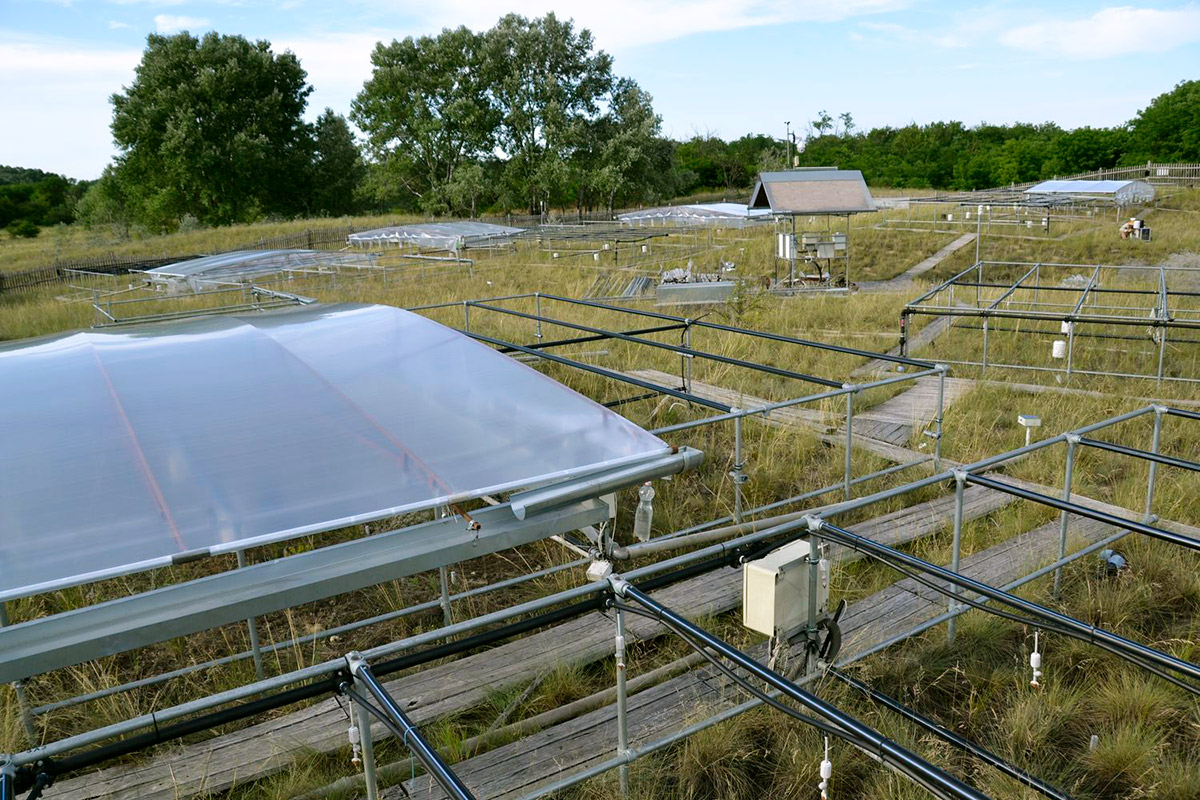The main question of our research is how climate change and extreme weather events affect the success of invasive plants in the sandy vegetation of the Danube-Tisza Interfluve. Biological invasions and climate change are two important processes threatening semi-natural ecosystems nowadays. The two processes are usually considered separately, but climate change can significantly influence the outcome of invasions. Climate change can directly affect the success of invasive plants already present. At the same time, invasive species can more easily invade vegetation that is slowly transforming due to climate change or collapsing due to extreme drought. Field experiments and long-term observational studies will investigate how single or recurrent droughts modify the coexistence and mass balance of alien and native species. Our research will focus on alien species already present in the sand steppe, with particular attention to the spread of North American sand dropseed, which has been present in Hungary for some years, and the factors influencing its success.




